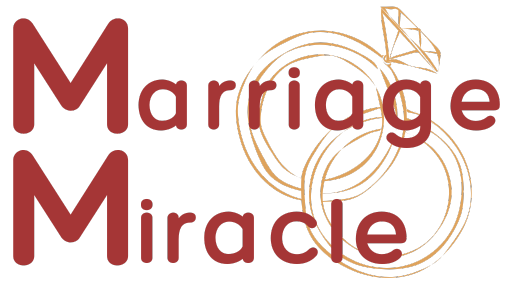My observation is that we want to be happy, but don’t know how.
This problem has been exacerbated by the messages in movies, television, and other influential media, that promote a consumer-oriented, immediate gratification society. We seem to feel entitled to be able to buy and get what we want with little effort on our part. We have been conditioned that happiness comes from the outside, by having enough money, the car we want, the job we want, the partner we want. Then, when we get what we want, we find that we aren’t happy!
Our relationships are not working because of this externalized, entitlement mindset. If we aren’t happy, it is our partner’s fault and the relationship isn’t working for us. I believe this is part of the reason for our divorce rate.
These dirty secrets of happiness are quite contrary to the messages found in the entertainment media, and I refer to them as “dirty” because many of us (consciously or unconsciously) want to believe the commercials’ promises and don’t want to look at the reality.
Secret #1: If you want a partner, be a partner
Many of us have a wonderful, romantic, vision of the life partnership we want; the reality is that great relationships require a lot of self-work and effort on your part in the relationship. If you feel like you are putting more effort into the relationship than your partner, you’re probably doing it right. The good news is that you CAN live your Vision, the challenge is that the effort must come from YOU.
Secret #2: The journey is the destination
We tend to focus on goals and results, which works well in many areas of our life, but not so well in our relationships. Chances are, you will always be striving toward the relationship you really want, and will never “arrive”. The destination of Life is Death, the awareness of which pushes us to be present in the moment, because we realize that is all we really have. Similarly, our journey with our partner is all we really have. Learning to be present with and appreciate the journey is the path to happiness.
Secret #3: The journey is always longer and harder than expected
We are an impatient culture that wants immediate results. While some of us have the work ethic and self-discipline for the sustained effort necessary to be successful, few of us are happy doing so. We look around and everyone else seems to get what they want so easily, and we wonder why it has to be so hard for us. Truly accepting this principle is a necessary step toward happiness.
Secret #4: Have goals while letting go of outcomes
While having goals and wanting results is natural, letting go of outcomes seems to be a necessary ingredient to happiness. This means being able to “go with the flow”, to be flexible and creative, to view mistakes and failures as opportunities. Success and happiness comes from a yin/yang balance of ambition and acceptance, assertion and tolerance, firmness and flexibility, choice and fate, having goals and letting go of outcomes.
Related Articles
Secret #5: Grow up and take responsibility
There is a wonderful book on this subject that I highly recommend by Dr. Frank Pittman, “Grow Up! How Taking Responsibility Can Make You A Happy Adult.” (St. Martin’s Press, 1998), which does an excellent job of explaining how we have become a society of victims, narcissists, and adolescents, and what to do about it.
He writes: “…happy grown-ups take responsibility. They take responsibility for their bodies, their characters, and their relationships. They own their lives and they own up to the choices they make. Finding the responsible thing to do is the lifelong quest for grown-ups. And it leads to real, grown-up happiness…” (page 278)
Secret #6: To be happy we must grow, to grow we must stretch
Our human nature is to have an inner conflict between comfort and challenge, growth and inertia. Balancing these opposing forces within us is an on-going effort. When we lean too far towards comfort, we risk stagnation, complacency, inertia. Too much challenge can lead to stress and burn-out. Our culture overvalues comfort and undervalues effort. Many of our clients engage our coaching to get what they want, and resist stretching beyond their comfort level to get it.
Secret #7: To get it, you have to give it away
This is a paradox that challenges the “Me” generation. We are much more motivated to “get” than to “give”, which wreaks serious havoc in our relationships. When we focus on giving and let go of keeping score, we have a chance of finding happiness in our life and relationships.
Secret #8: What goes around comes around
There is a consequence for your every choice and action. Of course we want our choices to be successful and get us what we want, and we resist acknowledging the possibility or reality of undesired outcomes. While this may seem simple and obvious, the spread of AIDS, multiple divorces, unwanted children, etc, are caused by people that are going after what they want and ignoring future consequences.
Secret #9: The Truth will set you free
Most of us struggle with a dissonance between what we want and what we have, the way things “should” be with the way things are, what we WANT to believe and the reality. When we can let go of our fears and ego enough to accept the truth about ourselves, life, relationships, etc., we open the door to the possibility of happiness.
Secret #10: Our relationships are our mirrors
The definition of intimacy that I like is “Into Me I See”. This can be quite challenging and uncomfortable, as we will experience the parts of ourselves that we don’t like (our “shadows”) as well as what we want to see. Happiness in a relationship means learning to use the relationship to learn and grow, which means taking full responsibility and even embracing our shadows when they get reflected to us.
Bonus Secret:
Happiness is a fleeting experience and highly overrated as a life goal. Incorporate the above “Ten Dirty Secrets of Happiness” into your life and learn to have goals while letting go of attachment to outcomes. When you can be happy with “what is,” you will experience true contentment.
© Relationship Coaching Institute | All rights reserved | Used with permission
Following are tips to help strengthen your marriage. But first, check out my products related to marriage health.

Add on from Waverly J. Hanson:
For those of you who have worked with me, or are working with me, you know I’m all about moving ahead. For most of us as human beings, it is so much easier for us to look at another person or situation as being the problem or the cause of our problem. “Owning” or “taking personal responsibility” for our part in the problems or the situation isn’t always easy, but vital to our joy in life.
- When we finally “get it” and can be confident enough to own our part, take personal responsibility,life begins to take on new meaning.
- Life actually works so much better for us and for those who are around us.
- We are able to be more relaxed.
- We are able to be less “uptight” or “stressed out” most of the time.
- We can just enjoy our lives and loved ones more when we accept one another as flawed human beings.
- We feel less angry that life isn’t going the way we had wished or thought it would because…
- We are so much more able to accept that life just “happens” on a regular basis – even with the best plans and intentions.

Waverly Hanson
Marriage Counselor & Author
In my personal life, I have had a long successful marriage and have remarried following my husband's death. I have had three sons and helped raise a niece for three years and have seven grandchildren. I have loved spending time with them as they were growing up.
I also enjoy getting together with family and friends, ATVing in the mountains, photography, hiking, and traveling. I also enjoy reading, creating art, decorating, and serving others by volunteering.
Assisting couples in rebuilding their marriages has been so rewarding as I've had the privilege of seeing hundreds of couples reunite and get back to being positively connected to one another.
I also work with personal development and those who want to move forward by making positive improvements such as goal setting, self-care, boundaries, behavioral improvements, overcoming procrastination, conflict management, etc.

